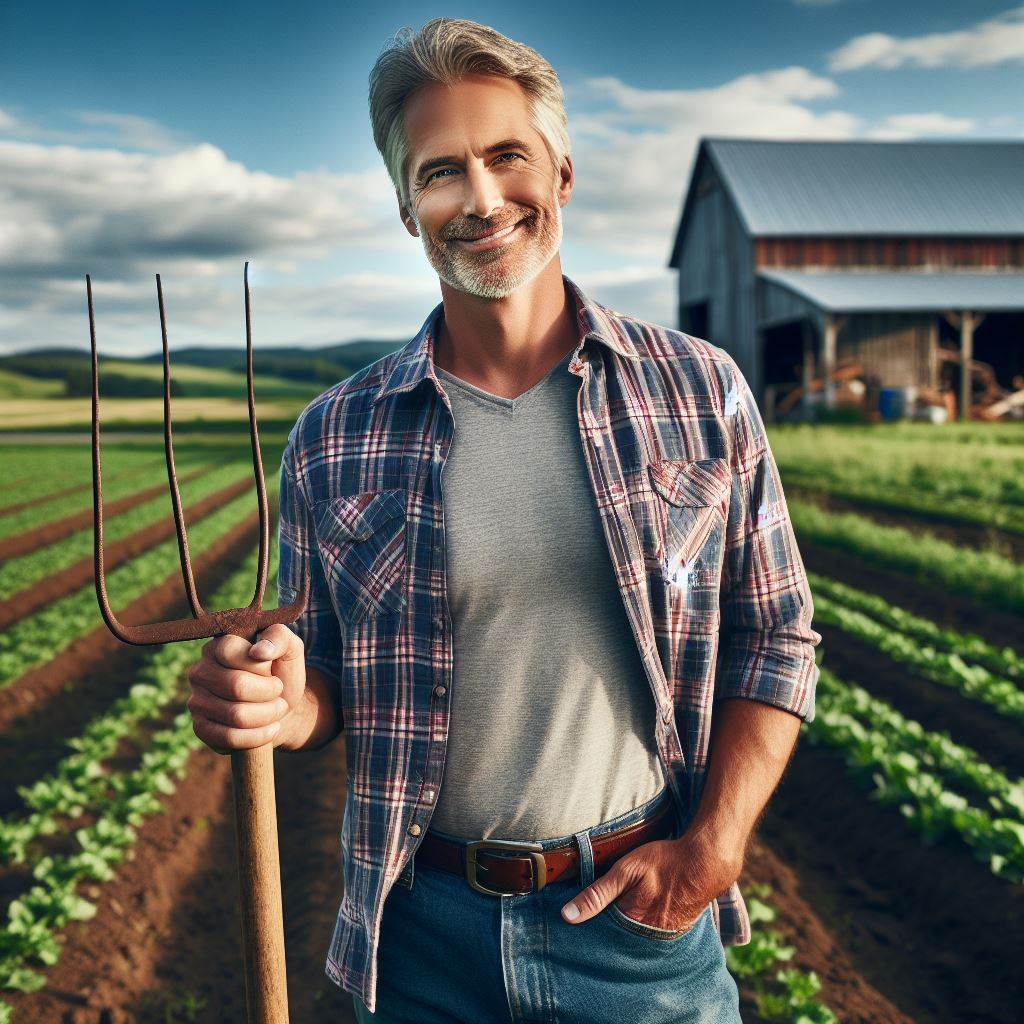Introduction
Boston Urban Farms, urban farming has become increasingly popular in cities around the world, including Boston.
It offers a unique solution to the challenge of limited space and access to fresh produce.
Boston, with its commitment to sustainability and community engagement, has embraced urban farming as a means to address food security and promote a healthier lifestyle.
Urban farming in Boston takes various forms, from rooftop gardens to community plots, transforming unused spaces into productive agricultural zones.
These farms not only provide nutritious food but also contribute significantly to the local economy.
By growing food locally, urban farmers reduce the environmental impact of transportation and decrease reliance on industrial farming practices.
One of the primary benefits of urban farming is the improvement of food access in underserved neighborhoods.
These communities often lack grocery stores with fresh produce, leading to a lack of healthy food options.
Urban farms bridge this gap by bringing nutritious food closer to residents, reducing the prevalence of food deserts.
Additionally, urban farming serves as a platform for education and community-building.
Schools and community organizations actively participate in urban farming initiatives, teaching residents sustainable farming techniques and fostering a sense of unity and pride in their neighborhoods.
In this blog post, we will explore the growth of urban farming in Boston, highlighting success stories and initiatives that have made a significant impact.
By delving into the benefits and challenges faced by urban farmers, we aim to inspire readers and encourage support for this sustainable movement.
Stay tuned for inspiring stories from Boston’s concrete to crops!
Why urban farming in Boston
In recent years, urban farming has become a growing trend in cities around the world, including Boston.
This practice involves cultivating crops and raising animals in urban areas, using both traditional and innovative farming techniques.
From small community gardens to larger-scale commercial operations, urban farming offers numerous benefits for its practitioners, as well as for the cities themselves.
Growing interest in sustainable agriculture
One of the main reasons why urban farming has gained traction in Boston is the growing interest in sustainable agriculture.
As people become more aware of the environmental impact of traditional farming methods, they are seeking alternatives that are more ecologically friendly.
Urban farming allows individuals to produce their own food using organic, pesticide-free practices, reducing their carbon footprint and promoting a healthier lifestyle.
Limited access to fresh produce in urban areas
Another factor driving the urban farming movement in Boston is the limited access to fresh produce in urban areas.
Many neighborhoods lack grocery stores or farmers markets that offer a wide variety of fresh fruits and vegetables.
This scarcity of nutritious food options contributes to health disparities and increases the risk of diet-related diseases.
Urban farming addresses this issue by bringing fresh, locally grown produce directly to urban communities, improving access to healthy food choices.
Community building and educational opportunities
Urban farming also plays a significant role in community building and educational opportunities.
By creating spaces where residents can come together to grow food, urban farms foster a sense of community and encourage social interactions.
People from different backgrounds can connect and share their knowledge and skills, promoting cultural exchange and camaraderie.
Moreover, urban farms often serve as educational platforms, offering workshops and programs to teach individuals of all ages about sustainable farming practices and the importance of healthy eating.
Utilizing idle spaces in the city
Lastly, urban farming allows for the utilization of idle spaces in the city.
Abandoned lots, rooftops, and even parking garages can be transformed into thriving agricultural spaces.
This repurposing of unused urban areas not only beautifies the cityscape but also contributes to the local economy.
The produce from urban farms can be sold at farmers markets, restaurants, or through community-supported agriculture programs, boosting the local food economy and creating job opportunities.
In fact, urban farming in Boston has gained popularity due to the growing interest in sustainable agriculture, limited access to fresh produce in urban areas, community building and educational opportunities, as well as the utilization of idle spaces in the city.
By embracing urban farming, Bostonians are not only improving their own access to fresh and healthy food but also working towards a more sustainable and resilient city.
With the numerous benefits it offers, urban farming is here to stay and will continue to flourish in Boston and beyond.
Read: Rice Farming Roots: Ancestral Stories
Benefits of urban farming in Boston
Access to fresh and healthy produce
Urban farming in Boston provides communities with direct access to fresh and healthy produce.
These farms cultivate a variety of fruits, vegetables, and herbs, ensuring a diverse and nutritious food supply.
Residents can enjoy locally grown, pesticide-free, and organic produce, promoting overall well-being.
By eliminating the need for long-distance transportation, urban farms ensure a shorter time from harvest to consumption.
This reduces the loss of freshness and enhances the taste, quality, and nutritional value of the produce.
Reduction in food miles and carbon footprint
Urban farming in Boston significantly reduces the food miles traveled by produce, benefiting the environment.
By growing food within the city, transportation emissions associated with importing produce from distant regions are minimized.
Fewer emissions from vehicles result in a decreased carbon footprint and contribute to the fight against climate change.
This localized approach also reduces traffic congestion and reliance on fossil fuels for food transportation.
Improved food security in underserved communities
Urban farming plays a crucial role in improving food security in underserved communities of Boston.
These communities often face limited access to affordable and nutritious food options, leading to food insecurity.
By establishing urban farms, fresh produce becomes readily available and affordable, ensuring no one goes hungry.
Residents have the opportunity to actively participate in growing their own food, empowering them to improve their food security.
Transform Your Agribusiness
Unlock your farm's potential with expert advice tailored to your needs. Get actionable steps that drive real results.
Get StartedJob creation and economic development
Urban farming in Boston creates job opportunities and fosters economic development within the city.
These farms employ local residents, reducing unemployment rates and providing stable income sources.
The agricultural sector contributes to economic growth as urban farms thrive, attracting investments and businesses.
Furthermore, these farms often generate surplus produce, which can be sold to local restaurants and markets, stimulating the local economy.
In short, urban farming in Boston brings numerous benefits that positively impact the community and the environment.
Access to fresh and healthy produce improves overall well-being, while reducing food miles and carbon footprint helps combat climate change.
Improved food security ensures that underserved communities have access to nutritious food, promoting a healthier population.
Job creation and economic development further contribute to the city’s growth and vitality.
By embracing urban farming, Boston is leading the way in sustainable agriculture and creating a healthier and more resilient future.
Read: The Wheat Whisperers: A Legacy Tale

Boston’s Urban Farm Initiatives
Overview of various urban farms in Boston
- The city of Boston has seen a rise in urban farming initiatives, contributing to a greener and more sustainable city.
- These urban farms not only provide fresh produce but also serve as community spaces for education and engagement.
- Urban farming helps address food insecurity, promotes healthy eating habits, and improves the overall well-being of residents.
Description of specific urban farm projects
1. The Green City Growers project in Roxbury
- Green City Growers is an urban farming organization that transforms unused spaces into flourishing organic farms.
- They partner with schools, homeowners, and businesses to create custom designed and maintained vegetable gardens.
- The project aims to increase access to fresh and nutritious food while educating the community about urban agriculture.
2. The Trustees of Reservations’ Boston Community Gardens
- The Trustees of Reservations operates several community gardens across Boston, providing residents with plots to grow their own food.
- They offer educational programs, workshops, and resources to support gardeners in their cultivation journey.
- The Boston Community Gardens create a sense of community and empowerment through shared gardening experiences.
3. The City Natives urban farm in Dorchester
- City Natives is a non-profit organization that focuses on urban farming and environmental education in Dorchester.
- They cultivate a wide variety of crops and offer education programs for children and adults on sustainable farming practices.
- City Natives aims to empower the Dorchester community to take control of their food system and build a greener future.
Boston’s urban farm initiatives are diverse, catering to various communities and promoting sustainability.
These urban farms serve as a testament to the city’s commitment to improve access to healthy food.
By converting concrete spaces into thriving farms, Boston is revitalizing its neighborhoods and strengthening its communities.
Through education and engagement, these initiatives are not just transforming landscapes but also changing lives.
Urban farming is a powerful tool that promotes self-sufficiency, environmental stewardship, and community empowerment.
As Boston continues to invest in urban farming, the city will reap the benefits of a healthier, more sustainable future.
Read: Hops Heritage: Brewing Family Tradition
Challenges and solutions in urban farming in Boston
Urban farming in Boston faces several challenges that need to be addressed to ensure its success and sustainability.
From limited space and high land costs to soil contamination and policy constraints, urban farmers must navigate various roadblocks.
However, innovative solutions and strategic approaches can help overcome these challenges.
Limited space and high land costs
1. Rooftop and vertical farming solutions
With limited ground space in urban areas, utilizing rooftops and vertical spaces is essential.
Rooftop farming involves transforming underutilized rooftops into productive agricultural spaces.
Vertical farming, on the other hand, utilizes stacked layers of plants in vertical structures.
Both methods optimize space and increase agricultural output.
2. Farming in containers and hydroponics
Container farming allows urban farmers to grow crops in portable containers, such as shipping containers.
These containers are equipped with the necessary technologies for growing crops, including lighting, irrigation, and climate control.
Hydroponics, a soilless cultivation technique, is another viable option for urban farmers.
It enables them to grow plants in nutrient-rich water solutions, conserving space and minimizing reliance on soil.
Soil contamination and remediation
Urban farming often faces the challenge of soil contamination due to historical industrial activities.
However, remediation techniques exist to restore contaminated soil and make it suitable for agriculture.
These methods include phytoextraction, where specific plants are grown to absorb contaminants, and soil amendment techniques using organic materials to improve soil quality.
Access to resources and funding
One of the major challenges for urban farmers is accessing the necessary resources and securing funding.
Limited access to land, equipment, seeds, and knowledge can hinder the growth of urban farms.
To address this, collaborations with community organizations, government initiatives, and financial support programs can provide urban farmers with the necessary resources and funding opportunities.
Policy and zoning issues
Policy and zoning regulations can pose obstacles for urban farmers.
Zoning restrictions may limit the type and scale of farming activities allowed in certain areas.
However, advocacy efforts and community engagement can help shape policies conducive to urban farming.
Establishing urban agriculture zones and working closely with local government authorities can lead to more favorable policies for urban farmers.
In general, urban farming in Boston faces various challenges, including limited space, high land costs, soil contamination, resource accessibility, and policy constraints.
However, with innovative solutions like rooftop and vertical farming, farming in containers and hydroponics, soil remediation techniques, collaborative partnerships, and policy advocacy, these challenges can be addressed.
By overcoming these obstacles, Boston can continue to develop its urban farming industry, contributing to a sustainable and resilient food system.
Read: Vineyard Vows: Generations of Grapes
Success Stories and Impact of Urban Farming in Boston
Testimonials from Urban Farmers and Community Members
Urban farming has had a profound impact on the lives of both urban farmers and community members in Boston.
Testimonials from those involved highlight the positive change it has brought.
- Sarah, an urban farmer in Boston, states, “Being able to grow my own food in the heart of the city has transformed my life. It’s not just about the fresh produce, but the sense of accomplishment and connection to nature.”
- John, a community member who regularly visits a local urban farm, shares, “The urban farm has become a gathering place for neighbors. It’s amazing to see how it has brought our community closer together.”
These testimonials demonstrate the personal fulfillment and community bonding that urban farming has fostered in Boston.
Health and Wellness Improvements in Local Communities
Urban farming has also made significant contributions to the health and wellness of local communities in Boston.
- With easy access to freshly harvested organic produce, urban dwellers have adopted healthier eating habits, leading to weight loss and improved overall health.
- The availability of fresh produce has tackled the issue of food deserts in Boston, ensuring that everyone has access to nutritious food.
- Studies have shown that participating in urban farming activities reduces stress levels among individuals, contributing to better mental health.
In summary, urban farming has made a direct positive impact on the health and well-being of individuals and communities in Boston.
Increased Community Engagement and Awareness of Sustainable Practices
One of the remarkable outcomes of urban farming in Boston is the increased community engagement and awareness of sustainable practices.
- Urban farms have become educational centers, offering workshops and classes on topics like composting, rainwater harvesting, and sustainable gardening.
- By actively involving community members in the farming process, urban farming has empowered individuals to take charge of their own food production and become advocates for sustainable living.
- Community events, such as farmers’ markets and farm-to-table dinners, have brought people together, fostering a sense of shared responsibility towards the environment.
Through urban farming, Bostonians have gained a deeper understanding of their connection to the food system and the importance of sustainable practices.
Showcase Your Farming Business
Publish your professional farming services profile on our blog for a one-time fee of $200 and reach a dedicated audience of farmers and agribusiness owners.
Publish Your ProfileExamples of Urban Farming’s Contribution to Boston’s Food System
Urban farming has become an integral part of Boston’s food system, contributing to its sustainability and resilience.
- The surplus produce from urban farms is often donated to local food banks and shelters, addressing food insecurity in vulnerable populations.
- Urban farms have revitalized vacant lots and underutilized spaces, turning them into productive areas that support local food production.
- Restaurants and grocery stores in Boston are increasingly sourcing their products from urban farms, strengthening the local economy and reducing carbon emissions from long-distance transportation.
These examples showcase how urban farming in Boston has transformed the city’s food system, making it more equitable, environmentally friendly, and self-reliant.
In a nutshell, the success stories and impact of urban farming in Boston have been far-reaching.
From individual satisfaction to community improvement and systemic change, urban farming has proven itself to be a powerful force for good in the city.
Conclusion
Recap of the importance and benefits of urban farming in Boston
Urban farming plays a crucial role in Boston’s sustainable future.
These farms not only provide fresh and nutritious food but also contribute to the reduction of food insecurity and environmental degradation.
By utilizing empty spaces, such as rooftops and vacant lots, urban farms promote efficient land use and help combat urban heat island effect.
Encouragement for readers to support or get involved in urban farming initiatives
We encourage readers to support and get involved in urban farming initiatives.
By buying produce from local urban farms or volunteering their time, individuals can directly contribute to a healthier and more resilient Boston.
Additionally, advocating for policies supporting urban farming and community gardens can create a supportive environment for these initiatives to thrive.
Closing thoughts and call to action
As we look towards the future, it is essential to prioritize sustainable and resilient food systems in urban areas.
Urban farming not only addresses food insecurity and environmental issues but also fosters a sense of community and empowerment.
By supporting and participating in urban farming initiatives, we can create a more sustainable and inclusive Boston for generations to come.
Let us all take action now and embrace the power of urban farming.




